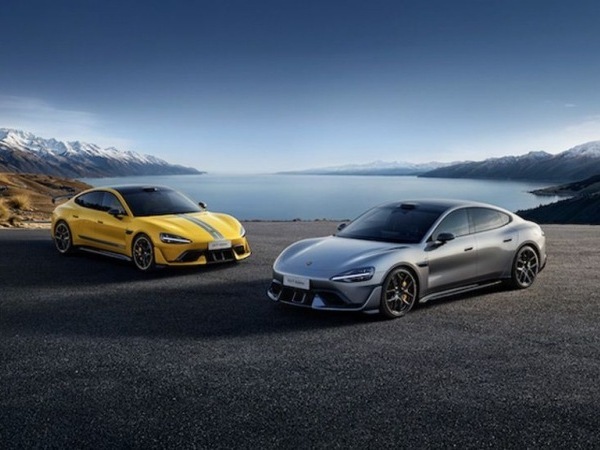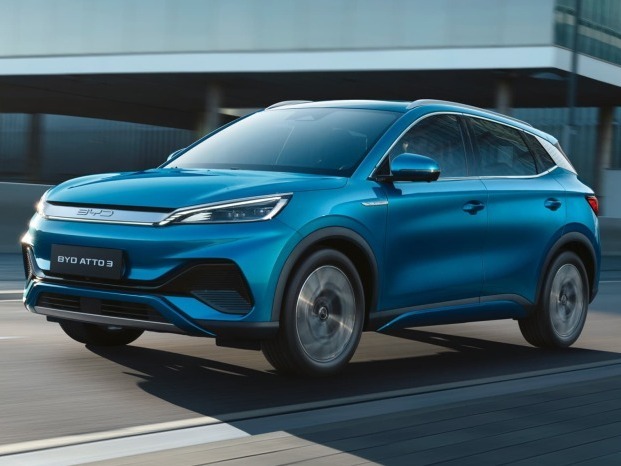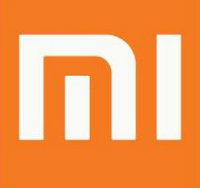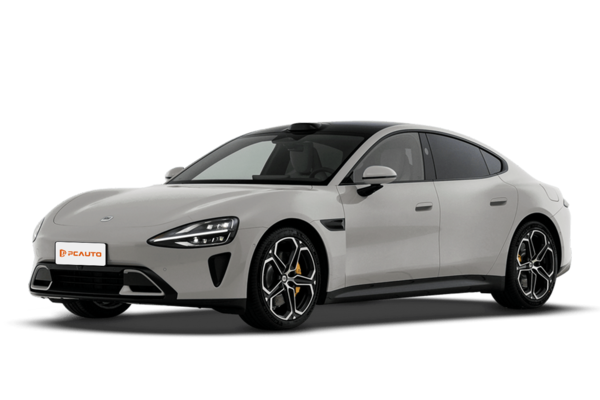Q
What is the price of the Xiaomi SU7?
As Xiaomi's first pure-electric sedan, the starting price of the Xiaomi SU7 in the Chinese market is currently around RMB 215,900 (approximately RM 142,000). The specific price varies depending on the configuration and regional policies. Regarding the Malaysian market, Xiaomi has not officially announced its plan to enter. However, referring to the localization strategies of other Chinese EV brands like BYD, if the SU7 is introduced in the future, the selling price may be adjusted considering factors such as tariffs, local assembly costs, and subsidies. Malaysian consumers should note that the prices of EVs are usually affected by battery technology (such as lithium iron phosphate or ternary lithium batteries), the cruising range (the standard version of the SU7 has a CLTC cruising range of about 700 kilometers), and intelligent driving functions. If the SU7 is launched in Malaysia, its competitiveness will depend on the development of local charging infrastructure, government tax incentives (such as import tax exemptions or road tax concessions), and a comparison with already launched models like the Tesla Model 3 and BYD Seal. It is recommended to keep an eye on the new energy vehicle policies of the Ministry of International Trade and Industry (MITI) in Malaysia and the official announcements from Xiaomi to obtain accurate information.
Special Disclaimer: This content is published by users and does not represent the views or position of PCauto.
Related Q&A
Q
What is the safety rating of Xiaomi SU7?
As the first pure - electric sedan from Xiaomi, the safety performance of the Xiaomi SU7 has drawn a great deal of attention. Although the full official safety ratings (such as Euro NCAP or C - NCAP) haven't been released yet, according to the publicly available technical specifications, this model is equipped with a number of active safety technologies, including adaptive cruise control, lane - keeping assist, and automatic emergency braking. Meanwhile, the vehicle body uses high - strength steel and has a battery protection design to enhance passive safety.
For Malaysian consumers, special attention should be paid to the battery thermal management system and local climate adaptability when it comes to electric vehicle safety. The SU7's IP67 waterproof and dust - proof rating and multiple battery safety monitoring systems can handle the hot and rainy environment.
If you want to learn more about the vehicle's safety, it is recommended to refer to the test results from authoritative institutions that will be released in the future. At the same time, comparing the ratings of comparable models like the Tesla Model 3 or the BYD Han can help you make a more comprehensive evaluation when purchasing a car.
With the growing demand for electric vehicles in the Malaysian market, it is advisable for consumers to have a test drive in person before buying and consult local dealers for specific information about the charging network and after - sales service.
Q
Why is the Xiaomi SU7 so popular?
The reason why the Xiaomi SU7 has received extensive attention in Malaysia is mainly due to its excellent cost - performance ratio and innovative intelligent technology configuration. As Xiaomi's first electric vehicle, the SU7 combines the advantages of high performance and intelligence. For example, it is equipped with an advanced autonomous driving assistance system and has a long - range battery life, meeting the dual needs of modern consumers for technology and environmental protection.
In addition, the high reputation that the Xiaomi brand has built up in the electronics field has also brought additional trust to its automotive products, making consumers full of expectations for its quality. In the Malaysian market, electric vehicles are gradually becoming a trend. The launch of the SU7 exactly meets the local consumers' pursuit of green travel and intelligent experiences. Coupled with Xiaomi's proficient marketing strategies, its popularity has been further amplified.
It is worth mentioning that the Malaysian government has been actively promoting the popularization of electric vehicles in recent years, including offering tax incentives and building charging facilities, which has also created a favorable environment for the popularity of electric vehicle models like the SU7. If you are interested in electric vehicles, you can pay more attention to the development of the local charging network and the battery life performance of different brands to make a more suitable choice for yourself.
Q
What type of plug is Xiaomi SU7?
As a pure electric vehicle, the Xiaomi SU7 is equipped with charging plugs that comply with the Chinese national standard (GB/T). Specifically, it supports two charging methods: GB/T DC fast charging and AC slow charging. This means that when using the vehicle in Malaysia, an adapter or a conversion plug may be required. In Malaysia, the Type 2 (Mennekes) standard is commonly used as the AC charging interface, while CCS2 is widely adopted for DC fast charging.
For Malaysian users considering purchasing or using the Xiaomi SU7, it is advisable to understand the compatibility of local charging piles. Some public charging stations may support multi - standard plugs, or charging can be achieved through adapters. Additionally, there are differences in electric vehicle charging standards across different regions. For example, CCS2 is predominantly used in Europe, while GB/T is the main standard in China. Such differences need to be paid special attention to when using the vehicle across countries. A suitable charging solution should be selected to ensure efficient energy replenishment for the vehicle.
With the global development of electric vehicles, the charging standards may be further unified in the future. However, currently, vehicle owners still need to keep an eye on the compatibility of local infrastructure.
Q
How long does it take to make a Xiaomi SU7?
As the first pure - electric vehicle from Xiaomi, the production cycle of the Xiaomi SU7 is generally similar to that of most new - energy vehicles. It usually takes about 4 to 8 weeks from order confirmation to delivery. The specific duration may vary depending on configuration choices, production capacity arrangements, and supply - chain conditions. For consumers in Malaysia, processes such as vehicle import customs clearance and local certification need to be considered, which may add an additional 2 to 4 weeks of waiting time.
It's worth noting that the production efficiency of new - energy vehicles has significantly improved in recent years, thanks to highly automated production lines and modular design. For example, the CTB (Cell - to - Body) technology adopted by the Xiaomi SU7 not only optimizes the production process but also enhances the vehicle's structural strength and range performance.
If you're ordering the SU7 in Malaysia, it's recommended to check the latest delivery schedule through official channels. Also, keep an eye on local new - energy vehicle policies, such as import tariff exemptions or the progress of charging infrastructure construction, as these may influence your car - buying decision and usage experience.
Q
What is the range of Xiaomi SU7 in real life?
The actual driving range of the Xiaomi SU7 is affected by various factors such as driving habits, road conditions, and ambient temperature. Under normal temperature conditions, the high - speed driving range of the four - wheel drive version of the vehicle stabilizes between 300 - 350 kilometers, and the range achievement rate under the CLTC driving cycle is about 75%. When there is continuous high - intensity output, the driving range may be reduced to about 60% of the nominal value. In winter's low - temperature environment, especially when the temperature is below zero, the driving range will decrease by 20 - 25%.
As for the standard version, when driving smoothly in the urban area on a daily basis with the air - conditioner and music on, the range achievement rate can reach about 85%, and the actual driving range can reach 595 kilometers. When driving on the highway at a constant speed of 110 km/h with the air - conditioner on and cruise control enabled throughout the journey, the actually measured driving range can reach 490 kilometers.
The Max version equipped with a 101 - kWh ternary lithium battery can actually run 559 kilometers under the conditions of high - speed driving, heavy rain, and the air - conditioner running at full capacity, with a range achievement rate as high as 97%.
Q
Is the Xiaomi SU7 fully electric?
Yes, the Xiaomi SU7 is a pure electric vehicle that runs entirely on batteries and doesn't rely on traditional fuel engines. It's also Xiaomi's first foray into the electric vehicle market. For consumers in Malaysia, pure electric vehicles are gradually becoming a popular choice, especially with the government's push for green transportation and tax incentives. Models like the SU7 are likely to draw more attention.
It is equipped with advanced battery technology, offering a long driving range and supporting fast charging, making it suitable for both daily commutes and long - distance drives. Additionally, the maintenance cost of electric vehicles is usually lower than that of fuel vehicles, as there's no need to replace consumables like engine oil and spark plugs.
If you're thinking about buying an electric vehicle, apart from considering the driving range and charging facilities, you can also focus on the vehicle's intelligent technological features. For example, the SU7 may come with autonomous driving assistance functions and in - car connectivity systems, which can enhance the driving experience.
Of course, the charging infrastructure in Malaysia is still under development. It's recommended to check the distribution of charging stations near your residence in advance to ensure convenient use.
Q
What is the wait time for Xiaomi SU7?
Currently, the delivery waiting time for the Xiaomi SU7 in the Chinese market is approximately 4 to 6 months. The specific duration depends on the configuration selected and the order volume. However, this model has not been officially launched in Malaysia yet, so local consumers can't place orders for it for now. If it enters the Malaysian market in the future, the waiting time may be affected by factors such as the local supply chain, certification process, and distribution channels. It is recommended to follow the official announcements of Xiaomi Auto or the information from local authorized dealers to get the latest updates.
For Malaysian consumers, while waiting for new energy vehicles, they can first learn about the layout of local charging facilities and government subsidy policies. For example, the current tariff rates imposed on imported electric vehicles and the installation specifications of charging piles in Malaysia. This information will help in planning future car - buying decisions.
It's worth mentioning that the Malaysian government plans to increase the proportion of electric vehicles to 15% by 2030. More new energy vehicles from international brands may be introduced in the future, and consumers can comprehensively compare the cost - effectiveness and after - sales service networks of different models.
Q
How fast is the Xiaomi SU7?
As the first pure - electric vehicle model of Xiaomi Auto, the performance of the Xiaomi SU7 has attracted wide attention. According to official data, the SU7 Max version is equipped with a dual - motor four - wheel drive system, with a maximum power of 673 horsepower. It can accelerate from 0 to 100 km/h in just 2.78 seconds and reach a top speed of 265 km/h. This achievement has placed it in the first echelon of high - performance electric vehicles. For users in Malaysia, such acceleration ability is more than enough to meet the needs of daily driving and even track experiences.
It's worth noting that electric vehicles usually have better acceleration performance than fuel - powered vehicles in the same class because electric motors can output maximum torque instantly. However, the actual range will be affected by the driving style. It is recommended to pay attention to the power consumption during aggressive driving. In addition, the hot climate in Malaysia poses higher requirements for battery thermal management. The CTB (Cell - to - Body) battery - body integration technology and the efficient cooling system adopted by the SU7 can effectively handle high - temperature environments. It is recommended that interested users visit the authorized showrooms to personally experience its acceleration performance and intelligent features.
Q
How safe is the Xiaomi SU7?
As Xiaomi's first electric vehicle, the safety performance of the Xiaomi SU7 is worthy of attention. This car adopts a high-strength body structure and is equipped with a number of active safety technologies, such as adaptive cruise control, lane-keeping assist, and automatic emergency braking. These functions play a positive role in enhancing driving safety and are especially suitable for the complex urban road conditions in Malaysia and the needs of long-distance driving. In addition, the battery system of the Xiaomi SU7 has passed a number of rigorous tests, including high-temperature, collision, and waterproof tests, to ensure its stability and safety in the tropical climate. For Malaysian consumers, when choosing an electric vehicle, in addition to paying attention to the range and performance, safety is of the utmost importance. It is recommended to refer to the crash test results of local or international authoritative institutions before purchasing a car and understand the vehicle's after-sales service and warranty policy to ensure peace of mind during long-term use. Electric vehicles are gradually becoming popular in Malaysia, and the charging infrastructure is also constantly improving. In the future, there will be more models suitable for the local market to choose from.
Q
Where is the Xiaomi SU7 sold?
Currently, the Xiaomi SU7 is mainly sold in the Chinese mainland market and has not been officially launched in Malaysia or other overseas markets. However, in the future, it may gradually expand to more regions, including the Southeast Asian market, based on market demand. For Malaysian consumers who want to learn specific information about this electric vehicle, they can follow the official updates of Xiaomi Auto or consult through imported - car channels.
As a pure - electric sedan, the Xiaomi SU7 is equipped with advanced intelligent driving assistance systems and high - efficiency battery technology, offering excellent range performance. It is suitable for users who pursue a sense of technology and eco - friendly travel. If it enters the Malaysian market in the future, it may compete with local electric vehicle brands such as Proton or Perodua's electric models. However, its specific performance will depend on the localization adaptation and the construction of the after - sales service network.
Currently, the Malaysian government is actively promoting the popularization of electric vehicles, including offering tax incentives and building charging facilities. Therefore, more international electric vehicle brands may enter the Malaysian market in the future, providing consumers with more choices.
Popular Cars
Model Year
Car Compare
Car Photo
Latest Q&A
Q
Can I run my ceramic coated car through a car wash?
Vehicles with a coating can be washed normally, but special attention should be paid to the maintenance period after application and daily cleaning methods. Car washing should be avoided for 7 to 14 days after coating to ensure the silicon components fully cure and form a protective layer; if the environment is dry, a minimum waiting period of 48 hours is required. If the vehicle becomes excessively dirty during this time, it may be gently wiped with a slightly damp microfiber cloth—use of high-pressure washers or stiff brushes is strictly prohibited. For regular washing, use a pH-neutral car shampoo, as alkaline cleaners will degrade the coating. Hand washing is recommended to avoid scratches from automatic car wash rotating brushes. Maintain a distance of at least 30 cm between the spray nozzle and paint surface, keep water temperature below 35°C, and rinse from top to bottom to minimize water spotting. When parking, avoid areas prone to falling corrosive substances (such as under trees), and have the coating inspected quarterly. Professional maintenance can extend protection beyond 12 months. Note: postpone washing during rainy seasons or when temperatures exceed 30°C, as extreme conditions may compromise coating integrity.
Q
How much does a 7 year ceramic coating cost?
The price of 7-year ceramic coating typically ranges from 3000 to 8000 Malaysian Ringgit, with the exact cost depending on product quality, vehicle size, and application techniques. High-end ceramic coatings use silica or glass-based components, with a hardness of over 8H, effectively resisting acid rain, ultraviolet rays, and moderate scratches, and offering a protection period of 5 to 7 years. The application process includes paint polishing and operation in a dust-free workshop, making it suitable for luxury vehicles or car owners seeking long-term protection. Mid-range products cost approximately 1500 to 3000 Malaysian Ringgit with a protection period of 3 to 5 years, suitable for mid-to-high-end sedans. Price differences are mainly influenced by brand premiums (e.g., imported products), application complexity (SUVs cost 20%-30% more than sedans), and shop certifications. It is recommended to choose professionally certified shops and request product testing reports to avoid paint oxidation caused by inferior coatings. For daily maintenance, avoid using strong alkaline car wash detergents, and a coating maintenance treatment can be performed every six months to extend its effectiveness.
Q
Why do car manufacturers not do ceramic coating?
Automakers have not widely adopted ceramic coatings mainly due to considerations of cost control, production process compatibility, and market demand balance. Although ceramic coatings offer advantages such as high hardness, corrosion resistance, and self-cleaning properties, their application requires specialized construction environments (e.g., dust-free workshops) and complex pretreatment (e.g., paint surface degreasing and polishing), which conflicts with vehicle manufacturers' efficient assembly line operations. Taking the Tata Safari as an example, its ceramic coating service is priced at approximately 2,500 rupees and requires completion through independent after-sales channels, highlighting the economic challenges of direct OEM integration. From a technical perspective, while nano-ceramic coatings' MSDS certification and inorganic compound properties can enhance body protection, large-scale application may compromise compatibility with existing electrophoretic coating systems. At the market level, local brands like Proton and Perodua tend to prioritize meeting basic needs, leaving advanced protective functions to third-party modification markets—a division of labor that better aligns with current consumer expectations for cost-effectiveness. Notably, the 3-year efficacy of ceramic coatings in Malaysia's hot and rainy climate still requires long-term validation, which may be another factor contributing to automakers' cautious stance. As local assembly plants increasingly emphasize differentiated services, more brands may follow Tata's approach by offering value-added coating solutions through authorized dealerships in the future.
Q
Is there a downside to ceramic coating?
Although ceramic coating offers advantages such as high hardness, strong hydrophobicity, and long-lasting protection, it still has some limitations. First, the application must be carried out by professionals in a dust-free environment. If the environment is substandard or the technique is not standardized, impurities or bubbles may appear in the coating layer, affecting the performance and even damaging the car paint. Second, the coating cannot enhance the physical hardness of the original car paint, and its protection against scratches from hard objects or impacts is limited. Moreover, after local damage, the entire surface needs to be repaired, resulting in high maintenance costs. The cost of each re-coating ranges from approximately 500 to 2000 Malaysian Ringgit. In addition, although the glossiness of ceramic coating is superior to that of ordinary coatings, it is still slightly inferior to glazing products. Car owners seeking the ultimate mirror-like finish may need to consider this trade-off. It is worth noting that the coating's effectiveness will diminish over time, and re-application is typically required after 2 to 3 years, so the long-term cost of ownership should be factored in. It is recommended that car owners select the coating type based on the vehicle's operating environment (such as rainy or high-temperature regions) and budget, while prioritizing certified installation centers to ensure quality.
Q
Can you see out of ceramic tint at night?
High-quality ceramic films provide clear visibility at night, with light transmittance typically maintained between 5% and 75%. The mainstream light transmittance of front windshield films ensures it is ≥70%, fully complying with the regulatory requirements for safe driving. Compared with films containing metal components, ceramic films use non-metallic materials such as titanium nitride, resulting in significantly lower reflectivity, which avoids the problem of glare at night. At the same time, the uniform distribution of nano-ceramic particles ensures efficient light transmission, so the driver's observation of road conditions will not be affected by insufficient light. It is worth noting that some dark-colored side window or rear windshield films may have lower light transmittance, but regular brand products will clearly indicate the parameters. It is recommended to choose models with light transmittance ≥35% to ensure nighttime safety. In addition, the stability of ceramic films allows them to maintain their initial light transmission performance after long-term use, without the problem of decreased light transmittance caused by oxidation as seen in metal films. If you have higher requirements for night vision, you can prioritize ceramic film products with photochromic technology. Such films can automatically adjust the light transmittance according to ambient light, further enhancing clarity at night.
View MoreRelated News

The new generation of Xiaomi SU7 MAX endurance test, continuous driving for 24 hours covering 4264 kilometers
AshleyJan 20, 2026

Xiaomi SU7 enters pre-sale with redesigned interior and 902km range
AshleyJan 12, 2026

Xiaomi SU7 Ultra priced at RM32,000, plans to sell globally in 2027
Kevin WongMar 5, 2025

Tesla's sales champion was taken away by BYD, Model 3 and Model Y lost their sales position in multiple regions
AshleyFeb 26, 2025

Xiaomi SU7 reached a new record of 100,000 vehicles offline in just 230 days!
AshleyNov 13, 2024
View More













 Cars
Cars




Pros
Cons